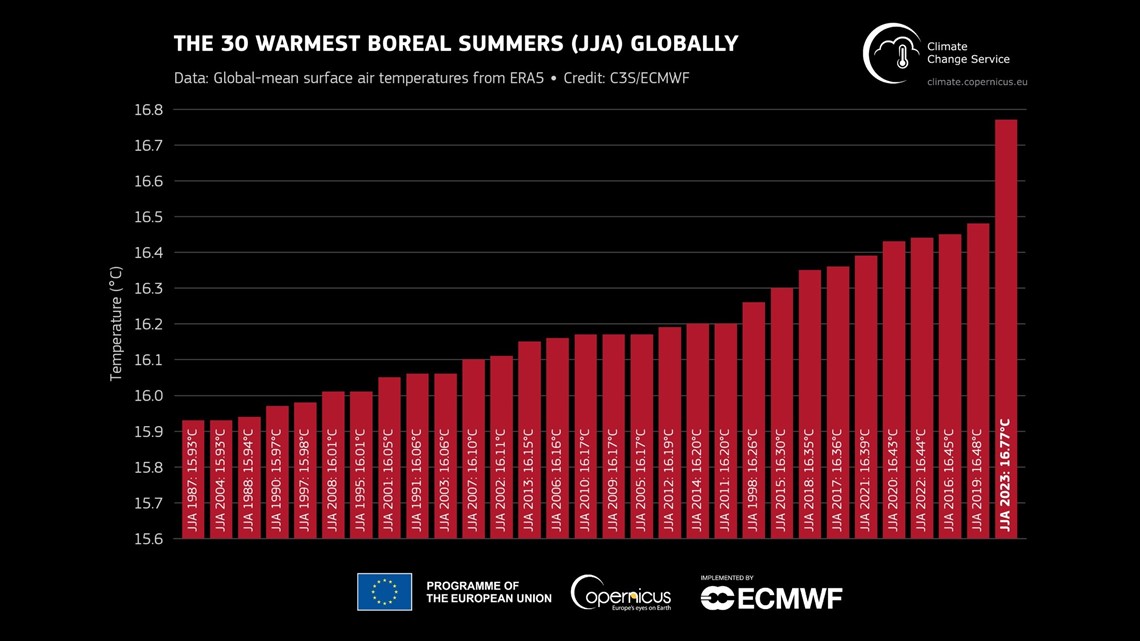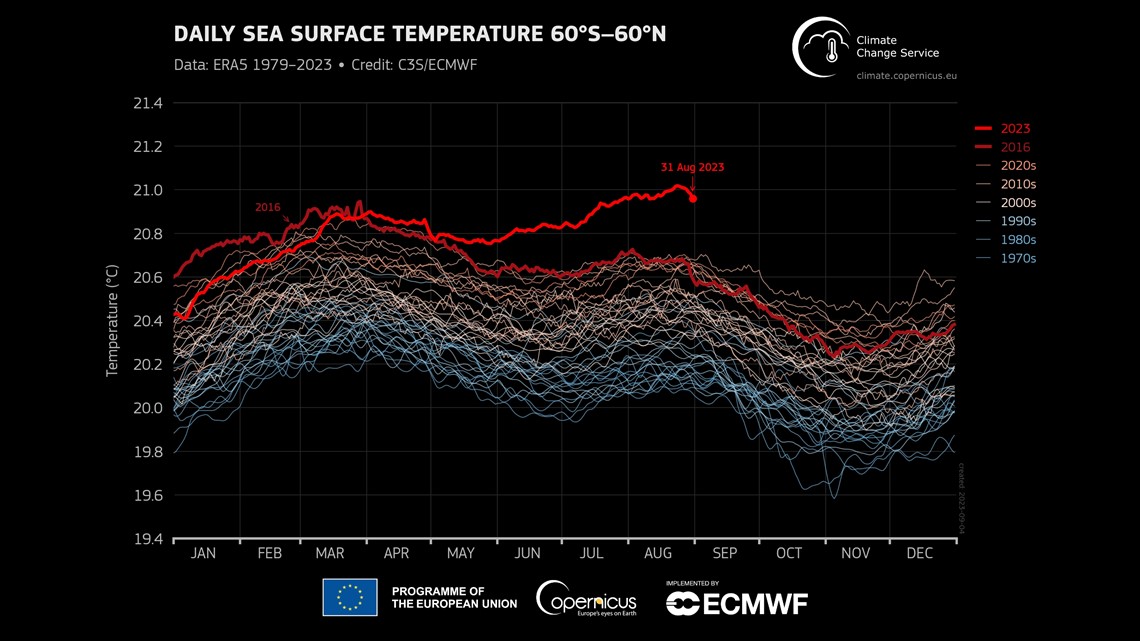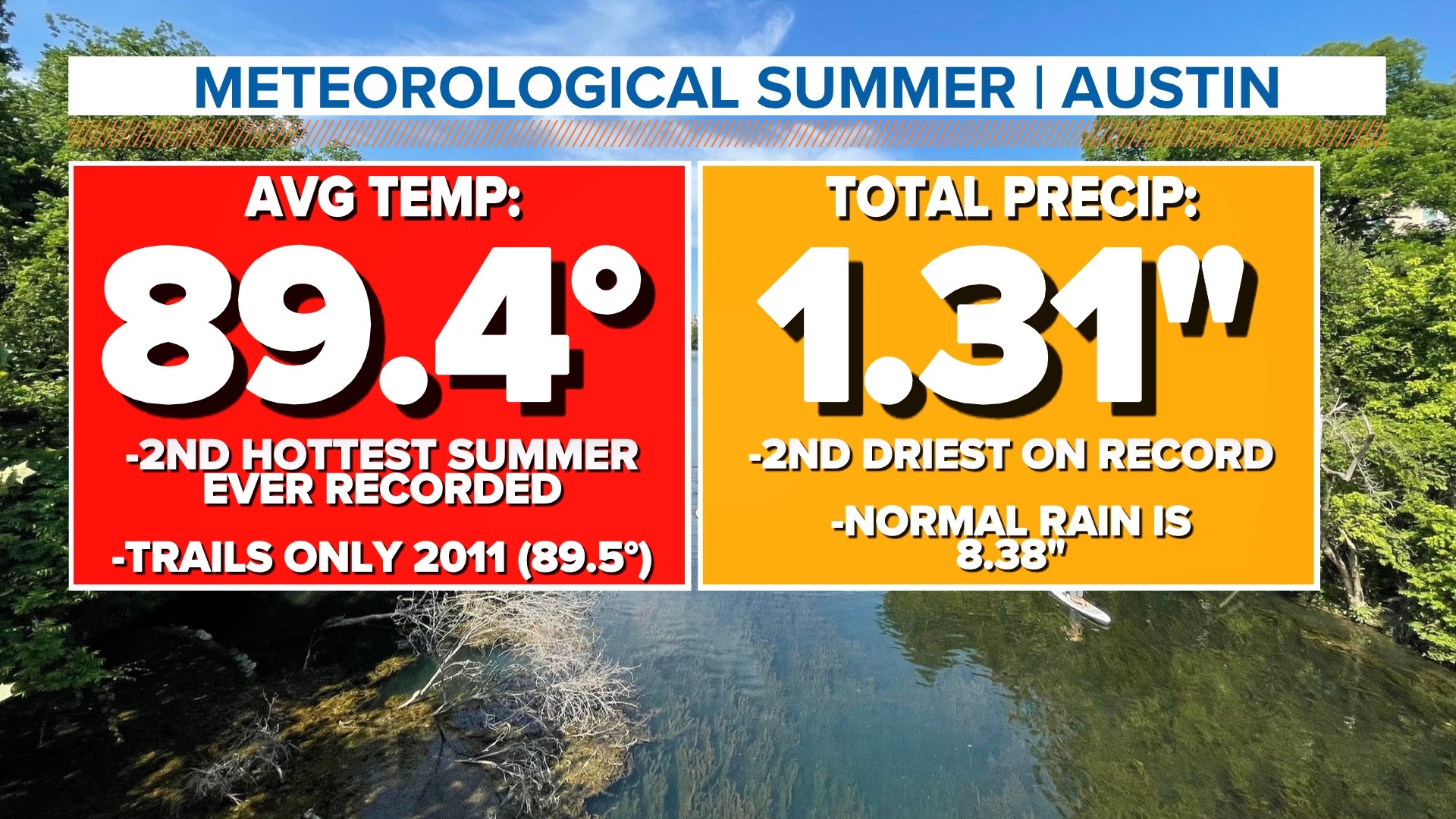AUSTIN, Texas — On Wednesday, Sept. 6, the World Meteorological Organization and Copernicus Climate Change Service published a report stating that 2023's June, July and August period has been the hottest three-month stint on record.
This is not a report for the U.S. but for the entire globe, including both air and sea surface temperatures from everywhere. Copernicus has been tracking global temperature patterns since 1940.
Below is a list of the 30 warmest June, July and August months since Copernicus has been collecting global temperatures.


It's easy to see that JJA (June-July-August) of 2023 sticks out like a sore thumb compared to the 29 other summers. We may have been able to anticipate this anomaly to an extent, because July 2023 was the hottest month ever recorded. August 2023 was the hottest August on record and the second hottest month on record, right behind July 2023.
Sea surface temperatures are also at an unprecedented level of warmth. Since April of this year, SST have been the warmest Copernicus has ever recorded.


Obviously, the Earth is much older than the data, which date back to 1940. However, climate scientists think that although the Earth undergoes periods of cooling and warming naturally throughout thousands of years, Earth likely never got this warm before the introduction of fossil fuels and greenhouse gas emissions.
Director of the Copernicus Climate Change Service Carlo Buontempo stated, "What we are observing, not only new extremes but the persistence of these record-breaking conditions, and the impacts these have on both people and planet, are a clear consequence of the warming of the climate system."
The impacts of El Niño globally are expected to strengthen as we head through the fall and winter months. In the past, El Niño years mean even more warmth for global temperatures. Only time will tell if 2023 comes out on top as the hottest year on record.
At the moment, 2016, another strong El Niño year, is still in first place.

